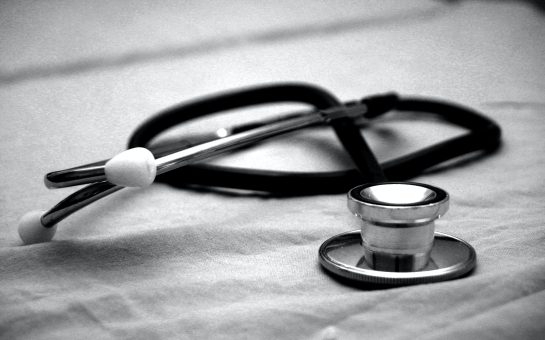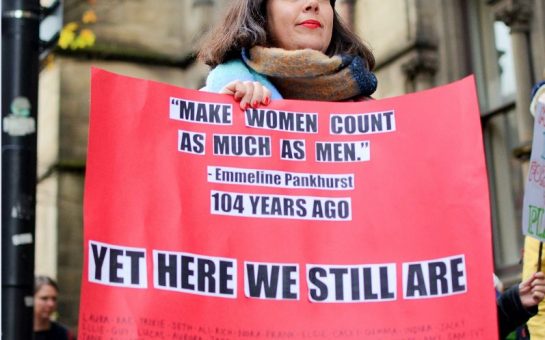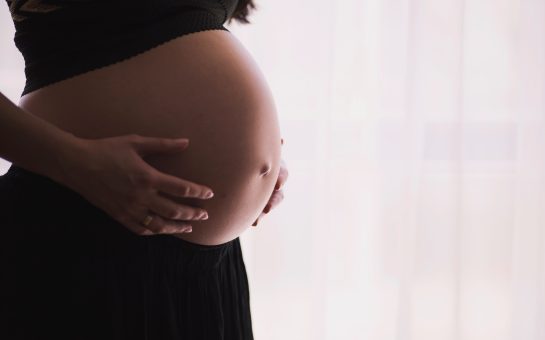South Manchester mums are choosing to give birth via C-section more than anywhere else in the North West, according to new statistics.
The latest figures from NHS Digital show 1,303 elective and emergency caesareans were carried out at University Hospital of South Manchester NHS Foundation Trust in 2016/17.
This means caesarean sections now make up 30.9% of all births, a slight increase from the year before, and the highest of all hospitals in Manchester and the North West.
A total of 660 were by elective caesarean, where the mother has opted to give birth via the surgical procedure, while 643 were by emergency C-section.
Elsewhere in the rest of the UK, the highest rate of caesarean sections is at Chelsea and Westminster Hospital in London, where C-sections make up 37% of all births.
The lowest rate is at Bradford Teaching Hospitals, where C-sections make up 23.4 per cent of births.
It comes as a midwife who works across Manchester warned it’s time to stop the stigma surrounding the procedure.
Midwife Emily Street said: “Unfortunately there is still a stigma attached to C-sections and it can make mums feel as if they have not ‘properly’ given birth.
“If they have not had the birth they wanted their confidence can suffer, and the scars left behind can be a constant reminder of that.”
A survey carried out by Fagron UK, who produce C-section scar gel Nourisil MD, found 47% of mums say their body confidence has plummeted after undergoing a surgical labour.
Meanwhile, 27% of mums admitted they felt too self-conscious about their bodies to wear swimwear or tight clothes.
A further 26% said they were ‘concerned or upset’ by the appearance of their scar, while 12% revealed they felt too self-conscious about their appearance to get undressed in front of their partners.
Emily, of independent midwifery company Bump & Me, added: “During pregnancy the tummy is stretched and with a normal delivery it tends to go back. When the tummy has been cut with a C-section, it tends not to.
“After such major surgery you would usually take some time off work to rest and recuperate and allow yourself to heal.
“But with a C-section it’s really hard to do that and I think people expect so much these days. Women can look around at others and think ‘why am I not bouncing back?’
“Now very often hospitals do enhanced recovery where 24 hours after a C-section you’re back at home. A mum’s focus generally then isn’t on herself, but is on the baby. She can be carrying the baby around for hours on end and sees jobs around the house that she wants to get done.
“More and more there’s situations of scars breaking down and the wound becoming infected. And I think that’s because the mum is not having enough time to recover.”
Nourisil MD contains five silicones and vitamin E which has been proven to fade, smooth and flatten scars while receiving associated pain and discomfort.
The gel includes polysiloxanes and tocopheryl acetate and works on all skin types by forming an invisible layer that hydrates and protects scars on all areas of the body, including the face.
After C-section wounds have fully healed and stitches have been removed, women are advised to gently massage Nourisil MD in twice a day.
Emily continued: “The period of postnatal care given by the NHS has reduced in the last few years. This means mums and babies have fewer home visits to check on their wellbeing as well as checking mum’s scar is healing well.
“I regularly get phone calls from mums who are a little unsure about what is happening because they don’t know what to expect.
“They don’t know how their scar should look at two to three days, or don’t know that at four to five days it can generally look worse because that’s when all the bruising comes out.
“I think it’s very hard for mums to ask for help because feel like they should be able to do it all.”
Reflecting on changing attitudes, Emily added: “There’s the saying that it takes a village to raise a child, but there isn’t that mentality anymore. There isn’t that same support.
“A lot of mums choose to have babies later on in life, and their parents are obviously older and less able to provide help. Or people tend to move away from home these days and don’t have friends and family on their doorstep that they can call on.
“I advise my mums to tell people that if they want to come and see the baby they must bring a lasagne. It’s practical help like that that can make such a difference.
“I also tell my mums to wear their pyjamas when people come over. That way visitors are aware that you are a patient.
“We’re so English and so desperate to get everything under control that we’re at risk of losing it.
“But it’s important for mums to remember that their body has done something amazing.”
Peter Batty, of Nourisil MD, added: “Our research has shown that women can become incredibly self-conscious about their bodies and their scars following C-section surgery.
“Many hope to lose their scars and get their bodies back – but it’s important to remember this should always be done in a sensible way and within a reasonable time frame.
“It’s easy to look at others and think mums are ‘bouncing back’ a lot quicker, but a C-section is a major abdominal surgery and should be treated as such. Having good support is key, as is allowing yourself enough time to properly heal.”
Meanwhile in the rest of Greater Manchester, the second highest rate of C-sections was at Pennine Acute Hospitals NHS Trust, where they make up 28.7% of all births.
*Image courtesy of Sergio Santos via Flickr, with thanks.



